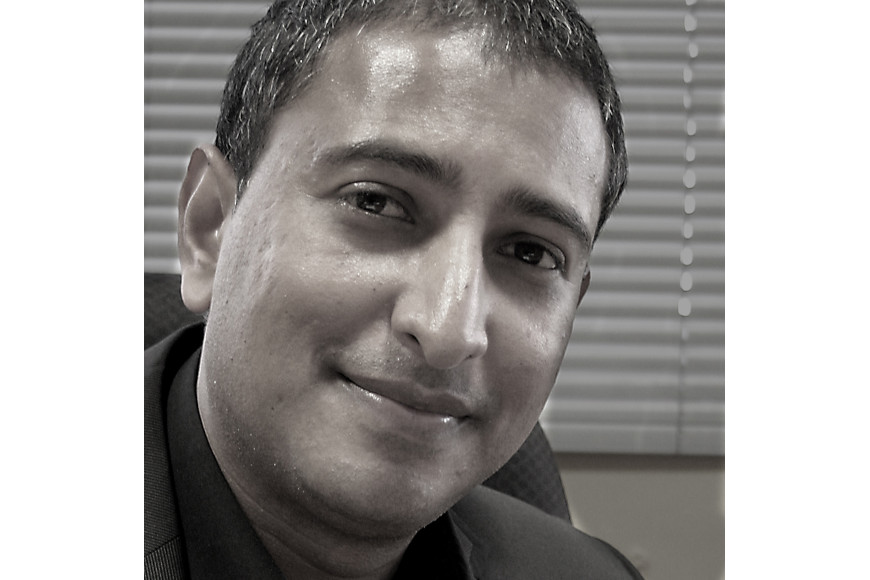The Research and Doctoral Leadership Academy (RADLA) at the Durban University of Technology (DUT) recently hosted a workshop to provide skills on Writing Public Opinion Articles on Various Media Platforms.
The workshop was conducted by Dr Imraan Buccus, a Post-Doctoral Fellow at DUT Gender Justice, Health and Human Development and a Senior Research Associate at the Auwal Socio-Economic Research Institute (ASRI). He is a columnist for the Daily Maverick and New Frame and is often called upon by television and radio stations to offer political analysis.
In her welcoming address, the Head of DUT RADLA, Professor Cheryl Potgieter said they had amazing interest in this workshop.
“I am very happy as the Head of RADLA which is the Research and Doctoral Leadership Academy, under the GenderJustice, Health and Human Development, a focus area to host this seminar for you. I want to first of all thank Dr Linda Linganiso, who is the Research Director at DUT, who is also an esteemed participant in this workshop. She, of course and Prof Sibusiso Moyo, the Deputy Vice-Chancellor: Research, Innovation and Engagement at DUT are crucial in making this happen in the sense that they provide the resources for us. I would like to thank her for the support that we have in terms of the postdoctoral scholars,” said Prof Potgieter.
She then introduced Dr Buccus, she referred to him as an experienced publisher and contributor to the public intellectual space in South Africa, on the continent and abroad. Prof Potgieter added that Dr Buccus has written numerous op-ed pieces, articles in various platforms, newspaper articles, social media and academic articles. Last year, he completed his PhD at UKZN in the School of Education, focusing on Career Trajectories of Black Vice-Chancellors.
Giving her brief message of support, Dr Linganiso thanked Prof Potgieter for organising such events for DUT, saying they help DUT to move forward as per the ENVISION2030. Furthermore, Dr Linganiso thanked her for setting up this unit for DUT and said she hoped other universities do not steal Prof Potgieter.
In response Prof Potgieter assured Dr Linganiso that she is happy at DUT and really loves what she is doing. In addition, she highlighted that she was at DUT because it has so much potential, showing at various levels, referring to DUT as a clean slate where one has the space to innovate and do exciting work.
In his opening remarks, Dr Buccus also thanked Dr Linganiso and Prof Moyo for providing support for this workshop, he recognised his fellow post-docs and Luphelo Hopa, Project Administrator at DUT’s GenderJustice, Health and Human Development Office for all the hard work in putting the workshop together.
Giving guidance on writing an op-ed, Dr Buccus said the only way to learn is to write an op-ed.
“You have to get into the practise of actually writing in order to be able to write. Academic writing often does not interest the reader. We know that very few people read academic writing. It is about how the intellectual world operates. If you are in a particular field, people who read what you write are likely to be people just in your field. If that writing only appears in academic journals, it means we are not influencing broader writing. Sadly, there is a huge gap between the academy and the national conversation,” said Dr Buccus.
Defining an op-ed piece Dr Buccus said it derives its names from originally having appeared opposite the editorial page in a newspaper, not an opinion or editorial as often supposed. He said the term is now used more widely to represent a column that represents the strong, informed and focused opinion of the writer on an issue of relevance to a targeted audience.
Dr Buccus added that an op-ed is typically short between 750 and 800 words. He said it has a clearly defined point of view, representing clarity of thinking and contains the strong and unique voice of the writer.
Dr Buccus guided the DUT staff in developing a record of placing op-ed articles in many of the nation’s leading media productions, by giving them tips and tricks to place their articles successfully.
The aim of the workshop was to assist participants to gain a broad understanding of the art of opinion writing and how to convert academic writing into op-ed pieces. The attendees were taught to understand how to effectively construct their argument or opinion piece in 800 words.
Some of the points to look out for when writing an op-ed, Dr Buccus said one needs to identify if he or she has a clear point to make. He said the writer needs to establish who cares about the particular topic, advising that one needs to write with a particular audience in mind. Dr Buccus also spoke about timing and how to write for a wide audience.
“Timing is critical. When an issue is dominating the news, whether it’s a riot, stock market panic or just the latest controversy, that’s what readers want to read and op-ed editors want to publish. Whenever possible link your issue explicitly to something happening in the news. Every successful op-ed piece or column must have a clearly defined topic and theme. The topic is usually stated in the first paragraph. The first line of an op-ed is crucial. The opening hook may grab the reader’s attention with a strong claim, a surprising fact, a metaphor, a mystery that entices the reader into reading more,” said Dr Buccus.
He also made emphasis on a strong ending, which echoes or answers the introduction and calls the reader into action. Dr Buccus also gave the participants a chance to attempt writing op-eds leaving many excited and ready to put their writing skills into practise.
Pictured: Dr Imraan Buccus
Simangele Zuma


